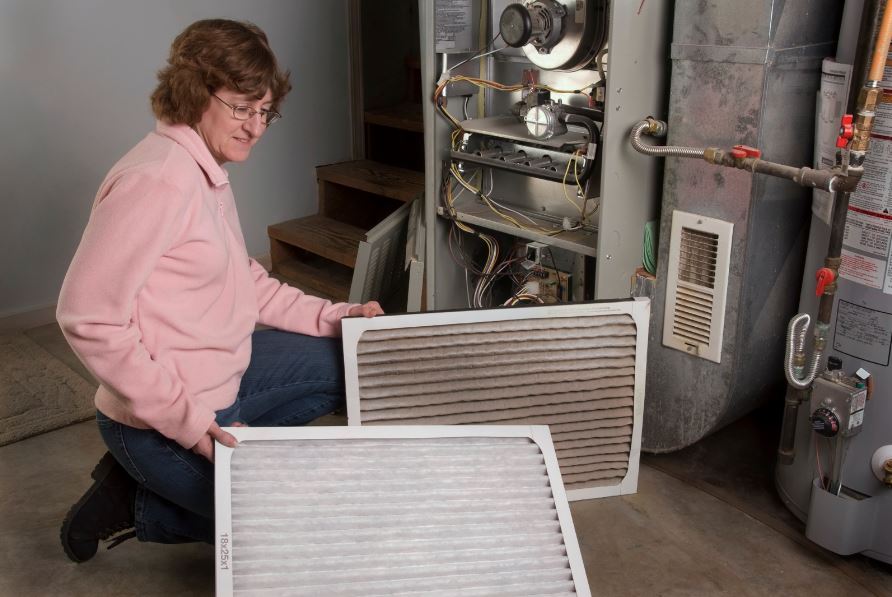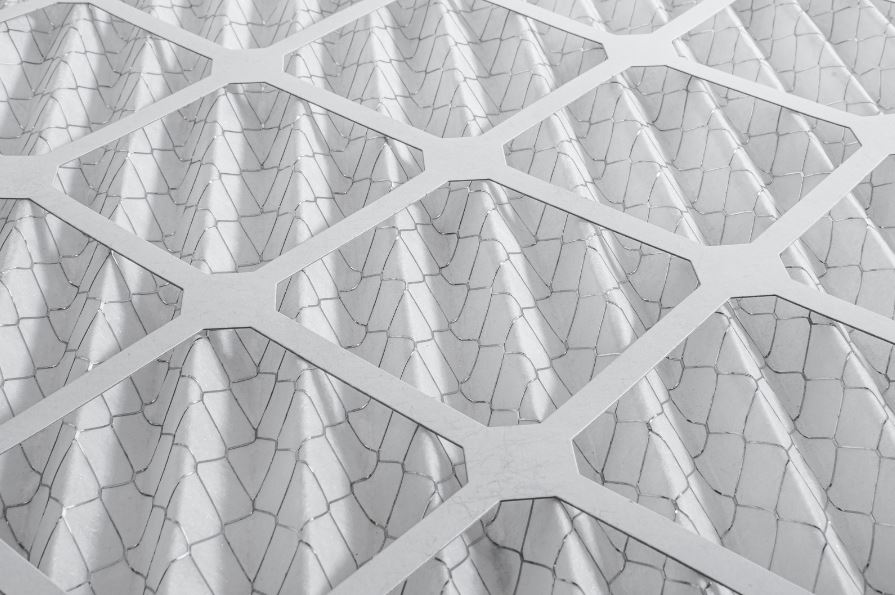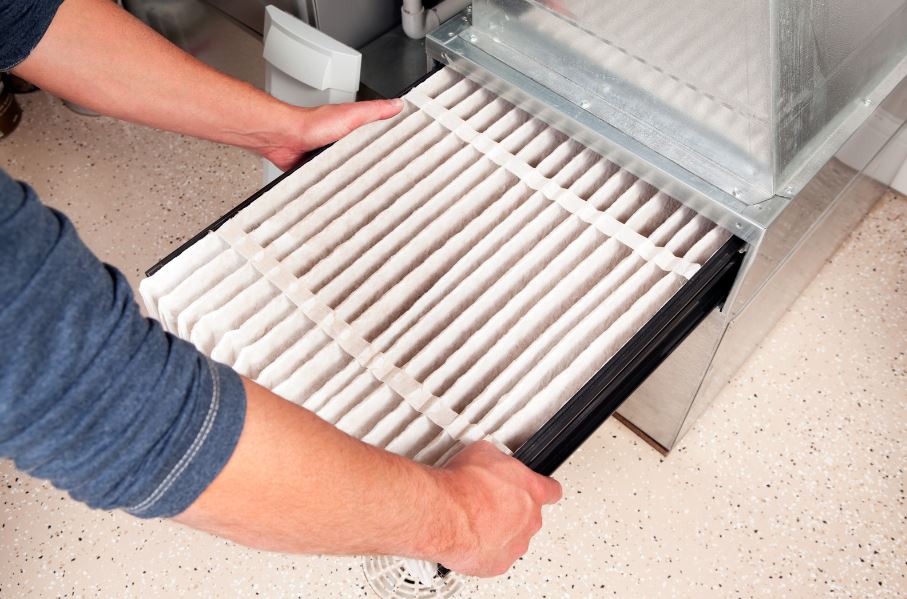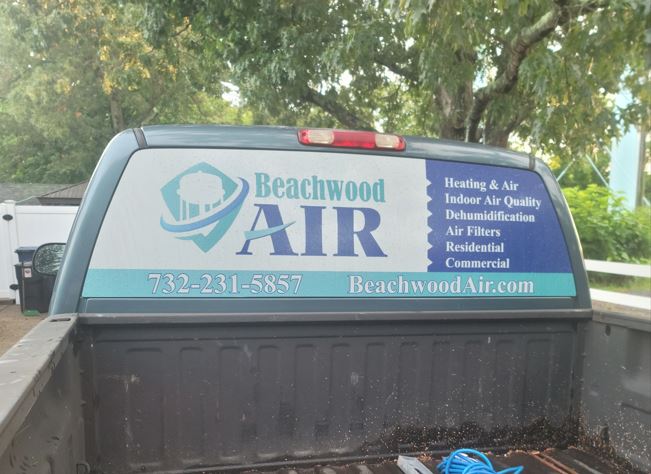
If you’re questioning how frequently you should replace your furnace air filter, you’re not alone. Many residents in Ocean and Monmouth County, New Jersey, grapple with this issue. Understanding the ideal timing for changing your home’s furnace filter can prove challenging. However, despite its small size, the furnace filter plays a crucial role in your system’s efficiency and air quality.
Regularly replacing your furnace air filter is essential to maintain optimal indoor air quality and ensure your system operates efficiently. A clean filter prevents dust, dirt, and debris from circulating, reducing strain on the system and improving air circulation throughout your home. Choosing the right AC filter for your home air conditioning system is equally important, as neglecting to replace it can lead to decreased HVAC performance, higher energy costs, and potential system malfunctions.
Neglecting filter changes can lead to decreased HVAC performance, higher energy costs, and potential system malfunctions. Therefore, adhere to manufacturer recommendations and consider factors like household pets, allergies, and system usage when determining the frequency of filter replacements.
This piece plays an important role in both preserving an ideal temperature and safeguarding the purity of the air that flows around your living space. Regardless, when you need to change your filter depends on a lot of different things.
Pleated filters, for instance, are an important element to consider. These components significantly enhance the performance and efficiency of your HVAC system, capturing more dust, pollen, and other airborne particles than traditional filters. However, because these filters work at a higher level they may require to be changed more often.
When choosing air filters also pay attention to the minimum efficiency reporting, or MERV, rating of your filter. This rating gauges a filter’s ability to capture and hold dirt and dust. A higher MERV rating indicates better filtration, but it also means the filter might need to be changed more frequently to prevent airflow restriction.
So basically, knowing when to switch out your furnace filter involves understanding these key concepts and regularly checking for airflow. For any HVAC needs in Ocean and Monmouth County, Beachwood Air is ready to assist. We prioritize customer satisfaction, offering reliable and affordable solutions.
What Is An Air Filter?
Furnace filters play a crucial role in the indoor air quality of businesses and households. Filters improve air quality by trapping and removing dust, pollen, and allergens, enhancing the cleanliness of the air. Air filters are used in a variety of settings, including cars, air conditioning systems, furnaces, and other HVAC units.
The impact of indoor and outdoor air quality on the service life and replacement cycle of the air conditioner is significant. Finding the right air conditioner replacement filter is crucial to maintain its efficiency and performance.
Air filters improve indoor air quality by preventing particles from clogging equipment and entering airways, reducing lung problems. Filters maintain a healthy indoor environment, ensuring clean and safe air for breathing.

Risks Of An Old Air Filter
Decreased Air Quality
A furnace air filter, specifically an HVAC air filter, traps particles and pollutants, preventing them from circulating. Regular replacement of the HVAC air filter is crucial to maintain indoor air quality. A clogged filter affects air quality. Old filters accumulate mold and bacteria, causing respiratory issues for those with allergies or asthma.
Increased Energy Bills
A clogged hvac filter can cause restricted airflow, leading to higher energy bills and increased wear and tear on your furnace. This occurs because your furnace has to work longer and harder to circulate air throughout your home.
Fire Risk
A dirty air filter can become a fire hazard. Old filters can become flammable, especially if they are dirty and clogged with debris. This can cause a fire, which can quickly spread and cause extensive damage to your property.
HVAC System Failure
A clogged air filter strains the heating and cooling system, leading to overheating and potential system failure. Costly repairs and lack of heating in colder months can be dangerous, especially for vulnerable individuals.
Health Risk
An old furnace air filter can cause a variety of health risks, most notably respiratory problems. Contaminants such as dust mites, pollen, mold spores, and pet dander can become airborne in our homes. When we breathe in these particles, they can irritate our airways, leading to symptoms like coughing, sneezing, wheezing, and shortness of breath. For individuals with asthma or allergies, these symptoms can be particularly severe.
Aggravation of Existing Conditions
Poor indoor air quality doesn’t just cause new health problems; it can also worsen pre-existing conditions. People with respiratory conditions like asthma and chronic obstructive pulmonary disease (COPD) are especially vulnerable. Exposure to indoor air pollutants can trigger asthma attacks and exacerbate COPD symptoms, making it harder for individuals to manage their conditions.
Increased Risk of Infections
Indoor air quality can also impact our susceptibility to infections. When indoor air is stagnant and contains pollutants, it can create an environment where viruses and bacteria thrive. This can increase the likelihood of respiratory infections, colds, and flu. Good indoor air quality, including proper ventilation, can help reduce this risk.
Cognitive Impairment
Recent research has shown that poor indoor air quality can affect our cognitive function. High levels of indoor air pollutants, such as volatile organic compounds (VOCs) emitted by certain building materials and furniture, can impair our ability to concentrate, make decisions, and think clearly. This is a concerning issue, particularly for schools and workplaces where people spend a significant amount of time indoors.
Long-term Health Effects
Exposure to poor indoor air quality over an extended period can lead to more severe and chronic health problems. These include heart disease, lung cancer, and other serious respiratory conditions. Radon, a naturally occurring radioactive gas that can seep into buildings, is a notable example of an indoor air pollutant linked to lung cancer.
Furnace Filter Replacement Frequency

As the temperatures start to drop, make sure your furnace is working efficiently by regularly changing its air filter. As a leading HVAC service on the Jersey Shore. We recommend changing your furnace air filter every one to three months. Air filters trap dust, debris, and allergens to maintain airflow. Over time, accumulation hinders filtration efficiency.
AC filters should also be changed every one to three months. It’s important to visually inspect them for clogging or debris to ensure optimal performance.
Regularly changing your furnace’s air filter improves air quality and extends HVAC system life. For optimal efficiency, schedule a maintenance appointment with Beachwood Air, ensuring comfort and health.
Benefits Of A Clean Air Filter
Using clean furnace filters is vital for our health, and it all starts with the air we breathe inside our homes. One way to ensure that the air in your house is clean is by having a clean air filter in your furnace. Replacing your furnace air filter regularly is key to maintaining excellent indoor air quality. A dirty air filter can cause your furnace to work harder, which means it uses more energy and results in higher utility bills.
Air filters are crucial in maintaining the temperature and indoor air quality of the home by trapping airborne contaminants from the cooling system.
A dirty air filter can also lead to poor airflow, which affects the efficiency of your heating system and can even lead to mechanical breakdowns. A clean furnace air filter not only provides energy savings and consistent airflow but also filters out airborne dust, debris, and pollutants.
What Are Hepa Air Filters?
Using a HEPA filter in conjunction with your HVAC furnace filter is a proactive and effective way to significantly improve indoor air quality. While standard HVAC filters capture larger particles like dust and debris, HEPA (High-Efficiency Particulate Air) filters take air purification to the next level by trapping even the tiniest particles, including allergens, pet dander, pollen, and even some viruses.
By incorporating a HEPA filter into your home’s ventilation system, you can ensure that the air circulated throughout your living spaces is exceptionally clean and free from harmful contaminants. This extra layer of filtration is especially beneficial for individuals with allergies, asthma, or other respiratory conditions, as it provides a higher level of protection against airborne irritants and allergens, ultimately contributing to a healthier and more comfortable indoor environment for you and your family.
What Do Most Air Filter Manufacturers Recommend
As we all know, keeping our home’s HVAC system working efficiently is essential to our comfort and health. One crucial component of this is the air filter, which helps trap airborne contaminants. But how often should you change it? Most air filter manufacturers suggest swapping out your furnace air filter at least every three months. This is especially important if you have pets or anyone in your household with allergies or respiratory issues.
Neglecting this simple task can cause the filter to become clogged, reducing airflow and forcing your furnace to work harder, leading to higher energy bills. So make sure to check your air filter regularly and stay on top of its replacement schedule.
Final Thoughts About Changing Your Furnace Air Filter
For the longevity and efficiency of your furnace, as well as the quality of air, are heavily influenced by the state of the furnace air filter. Consistently swapping out your filter fosters improved respiratory health, mitigates risks of fire and system breakdowns, and lowers your energy costs. This seemingly straightforward task helps in avoiding expensive repairs and potential health complications.
Our general guideline is to change your air filter every one to three months. If you’re not sure how, or aren’t sure which is the best filter to buy for your particular furnace or HVAC equipment, call the experts at Beachwood Air – we are always ready to help.
Your furnace is the core of your home’s heating system, and the air filter is the catalyst for its peak performance. Begin prioritizing it today for a secure, cozy, and comfortable home atmosphere.



